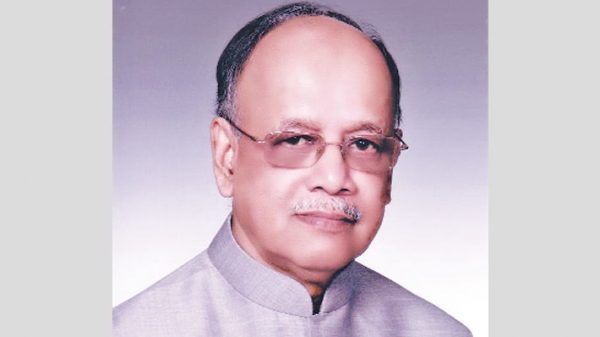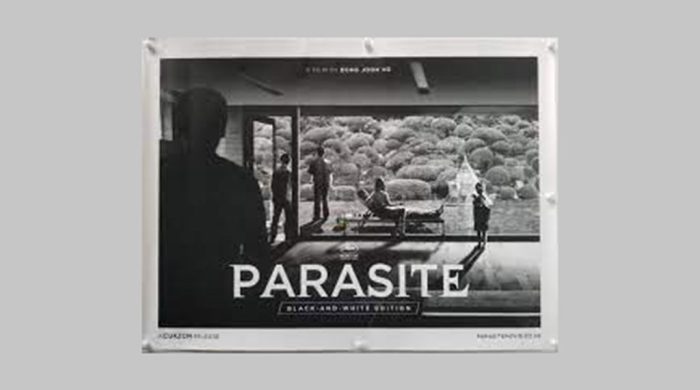This year’s National Mourning Day came under a new circumstance. The country was celebrating its Fifty Years of independence and birth centenary of the Father of the Nation Bangabandhu Sheikh Mujibur Rahman. The day was observed by many organizations including the Bangladesh Awai League with due respect and solemnity. In quite a few programmes Awami League President and the Prime Minister Sheikh Hasina spoke either as the President of the meeting or as the Chief Guest. In such meetings she asks the same questions and for the first time she mentioned the name of few senior Awami League Leaders and disclosed that when their house was attacked in the early morning of 15th August 1975 her father called them and informed them about the attack but unfortunately they all failed to take any meaningful step to either save her father or her family members.
From 1975 to 2021 forty six-years have elapsed. The trial of the killers of Bangabandhu has taken place and out of them twelve were found guilty and sentenced to death. Seven have already been hanged while one died absconding and four are still at large. Those tried and sentenced were all military officers. Some of them were in service at that time, some were on retirement. Any student of history and reader of conspiracies and coups and counter coups will acknowledge that in most of such cases as that of 15th August besides those who take direct part in the carnages like the one on that day there are many others who remain behind the scene and are the main driving force of such assassinations, conspiracies and coups. The killing of Bangabandhu and his family members was no exception.
Anthony Mascarenhas in his well-read book, Bangladesh – A Legacy of Blood based on a long interview with one of the mastermind of the 15th August killing Col. Rashid (sentenced to death, absconding and dismissed, presumably in Pakistan) wrote ‘Rashid was well aware that Mujib’s killing could unleash a spontaneous storm of violent opposition which they would not be able to contain with the meagre forces available to them….Explaining his reasoning, Rashid said he had to eliminate four potential source of trouble. The first was the Awami League, the monolithic party spread throughout the country which had substantial numbers of armed cadres among the students. The second was the Rakkhi Bahini, Mujib’s 25,000 well-armed storm troopers who were personally loyal to him. These groups would either react strongly –in which case it would be the end of the Majors-or they would seek asylum in India as they did in 1971 before returning with the assistance of India troops to rout Bangabandhu’s killers. The third consideration, according to Rashid, was the possibility that once Mujib was killed the vengeful people might turn on the Awami Leaguers and kill them. This again could create an impossible law and order problem while at the same time provoking a flood of refugees to India with the attendant dangers of Indian intervention. We did not want to create a refugee problem…because it would have create another situation like that in 1971 and India would have come in. This would have been totally self-defeating’. The fourth consideration, Rashid said according to Mascarenhas, was to cut out any possible reason for Indian intervention.
According to the interview Rashid gave to Anthony Mascarenhas, when they were coming out of the cantonment on that fateful night with tanks and field guns along with the killer troops instead of the normal exit route from the cantonment (Jahangir Gate) the killers came out through the Tejgaon Airport and ‘on reaching the perimeter wall of the airport Farook discovered (according to Farook) “suddenly I found a brigade of 3,000 Rakkhi Bahini lined up six rows deep…they were battle equipped-steel helmet, rifles, packs, everything. …The driver of the tank (on which Farook was riding) said ‘what am I supposed to do?…I (Farook) told him just drive past six inches from their noses. I ordered the gunner to keep the gun pointed straight at them. I told the other chaps in the turret to look brave.’ The Rakkhi Bahini about whom there were so much of misinformation, stood there in silence like statues as the killers passed by towards Dhanmondi. It is true the Chief and Deputy Chief of Rakkhi Bahini were out of the country on the day of occurrence but why were others paralyzed, especially some civilians who looked after the affairs of Rakkhi Bahini on that fateful morning in spite of the fact Bangabandhu called them? These are the answers the daughter of the Father of the Nation is looking for.
The fourth trouble that Rashid apprehended that they might encounter once their mission was accomplished never happened. India did not want another round of any sort of problem involving Bangladesh. Early on a number of occasions Bangabandhu was warned by the Indian intelligence agency RAW and even the then Indian Prime Minister Indira Gandhi personally informed Mujib about a possible coup. Even the air of Dhaka was thick with the rumour that something is going to happen. According to Mascarenhas even the students of Dhaka University were found talking of a possible coup. Bangabandhu was indifferent to such warnings as usual and wrongly presumed all Bangalis were like his sons and none would want to harm him. Major General Sujan Singh Uban known for his brilliant expertise in guerrilla warfare and known as the person who raised India’s elite Special Frontier Force (SFF) and Mujib Bahini, met Bangabandhu in early 1973 on request to advise him on the raising and efficient and effective Rakkhi Bahini. In his book ‘The Phantoms of Chittagong – the fifth army’ Uban wrote when he went to meet Bangabandhu in his Dhanmondi residence he found the Prime Minister’s security to be virtually non-existent. He brought this to the notice of Bangabandhu who in his casual tone replied ‘people lovingly called me the Father of the Nation, how can a father close the door of his residence to his sons’? General Uban was not impressed. 15th August is the Independence Day of India and killers chose the day for strategic reasons knowing very well that the Indian administration would be busy with their national day.
Another apprehension by Rashid was the reprisal by the Awami League workers which virtually never happened because by August 1975 Bangabandhu was surrounded by all kinds of sycophants and corrupt officers. Once the Father of the Nation was killed and his long political colleague Khondakar Mostaq declared himself as the self-styled President, those who joined his cabinet on the evening of 15th August belonged to the Bangabandhu’s cabinet or headed important offices in government institutions, or were secretaries to the important government ministries. Others just went into hiding or supported the killing and joined the rank and file of the killers and few weeks later joined hands of General Zia the main beneficiary of the killing of Bangabandhu and helped him form his BNP. Bangabandhu’s security was completely compromised all through. Virtually all key positions were filled by either pro-Pakistani elements or repatriates from Pakistan. A B M Safdar a Pakistan Police Service officer who was instrumental in supplying the Pakistan army all the required documents and papers to frame a charge sheet against Bangabandhu during the Agartala Conspiracy Case in 1969. He entered the police service in 1952. In 1971 he helped the Pakistan Army raise the East Pakistan Civil Armed Forces (EPCAF) comprising of non-Bengali Biharis, Razakars, Al-Shams and Al-Badars. In August 1975 Safdar was heading the NSI, the all-important civil intelligence agency. This is civilian posting. Who decided to post Safdar in this position? Expatriates N M Nurul Islam was the IGP while Brigadier Abdul Rouf was posted as DFI Chief (Current DGFI). On 14th August evening the troops from the army usually for ceremonial purpose and security at Bangabandhu’s residence were replaced by troops of First Field Artillery Regiment from Cumilla, a regiment where Bazlul Huda and Aziz Pasha served. They were involved directly in the killings of 15th August. It is not usual for bringing in troops from outside Dhaka for posting for such purposes, whether in the President’s or the Prime Minister’s residence. Strangely the new arrivals did not have any ammunition for their arms. They were informed that the ammunitions will be supplied the following day.
The big question is, has the situation improved forty six years later. The simple answer is a simple NO. Bangabandhu’s daughter, the current Prime Minister is now more vulnerable than her father. Today’s Awami League comprises innumerable intruders and hybrids, who joined the party simply for personal gains, in many cases allegedly buying their entry. They are in government administration, in different important civic bodies, statutory and constitutional. Earlier when BNP was in Jatiyo Sangsad in full strength, some BNP members would often remind Sheikh Hasina not to forget 15th August. Lately some BNP leaders question why does the Prime Minister do not go out of Gonobhavan? These are not good signs. For obvious reasons the Prime Minster has to stay in Gonobhavan during this pandemic period. Finally the Prime Minister has to take stock of the situation and make a background check of the people with whom she works regularly, or who are posted in key government positions.
The government has announced that an Independent Commission will be formed to investigate into the events leading up to the tragic 15th August of 1975. Every year people hears similar rhetoric when the National Mourning Day approaches but nothing tangible happens. This time, as announced, a commission must be formed with people who will be able to produce an objective report and identify the people who failed to perform their duties diligently or were accomplices in the conspiracy. The country needs the leadership of Sheikh Hasina now and in the future. Yet the country has to find any replacement of her.
The writer is an analyst and a commentator





















